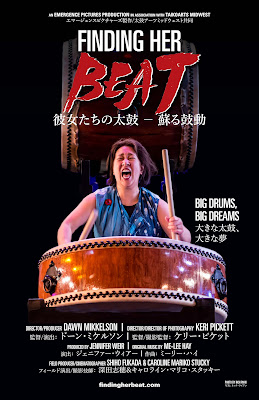Japan Society
Presents
Seijun Suzuki Centennial
When: February 3rd - 11th, 2023
Where: Japan Society NY
333 East 47th Street
New York, NY 10017
Map
A Six-film Celluloid Series Celebrating 100 Years of Seijun Suzuki
Celebrating 100 years of iconoclast director Seijun Suzuki (1923-2017), a singular force in Japanese cinema whose radical stylistic vision and unpredictable narratives shaped the B-movie genre, Japanese cinephilia and the political New Left, Japan Society and The Japan Foundation present Seijun Suzuki Centennial—a selection of six films from across the filmmaker’s nearly 60-film body of work, all on imported 35mm prints straight from Japan. Covering ground from his earliest yakuza feature (Satan’s Town) to his unbridled return to studio filmmaking after being blacklisted for 10 years (
A Tale of Sorrow and Sadness) and his subsequent independent success (
Kagero-za), this special series offers a rare glimpse into the core of Suzuki's creative genius.
Organized in conjunction with the recent publication of series’ guest curator William Carroll’s
Suzuki Seijun and Postwar Japanese Cinema (Columbia University Press, 2022), Seijun Suzuki Centennial delves into the versatility and audacious nature of the maverick filmmaker’s singular stylistic impulses. As Carroll notes, “Suzuki, a major figure in the transformation of Japan's film industry and culture, began as something of a cog in Nikkatsu's machine, churning out up to six films a year for them in a variety of genres according to their needs. Even from the beginning, though, you can see the seeds of his style that would blossom in his final few years at Nikkatsu as he became a major figure for Japan's cinephile culture. When he was fired, it became a watershed moment for the collapse of the studio system and the rise of independent film production, giving himself a place to reemerge with his most daring and experimental work a decade later.”
Series guest programmed by William Carroll, Assistant Professor of Modern Japanese Cultural Studies at the University of Alberta.
Tickets: $15/$12 students and seniors /$10 Japan Society members.
Series Pass: Purchase tickets for all films in the same transaction and receive $2 off each ticket.
Lineup and other details are subject to change. For complete information click
here.
FILM DESCRIPTIONS
All films are in Japanese with English subtitles.
Kagero-za
Friday, February 3 at 7:00 PM
Directed by Seijun Suzuki
With Yusaku Matsuda, Yoshio Harada, Mariko Kaga
1981, 139 minutes, imported 35mm print, color
Playwright Matsuzaki (Yusaku Matsuda) finds his fate caught in between the lives of two strange women—one whose enigmatic persona evinces a presence beyond this mortal coil; another whispered to be a European in disguise, her blue eyes and golden hair appearing only under moonlight. Roped into fulfilling a role he’s seemingly meant to play, the dramaturge becomes beleaguered when he’s invited to a rendezvous that suggests a double-suicide—one in which he may very well be an unwilling participant. Suzuki’s head-spinning follow-up to his independent comeback Zigeunerweisen renders a vividly hedonistic and perverse depiction of the taisho period bordering on nightmare. Unfettered by studio constraints, Suzuki’s disorienting adaptation of Kyoka Izumi’s ghost story obscures reality in its hazy meandering, ambiguous and ghostly performances, and disparate sense of time and space—offering a forbidden vision of the past.
Satan’s Town
Saturday, February 4 at 5:00 PM
Directed by Seijun Suzuki
With Seizaburo Kawazu, Shinsuke Ashida, Ichiro Sugai
1956, 79 minutes, imported 35mm print, b&w
In this convoluted crime film that echoes Raoul Walsh’s White Heat, a gang boss decides to pull off a heist after getting out of prison, but the team he puts together has multiple competing ambitions and very little loyalty. Suzuki extends his formal experiments to editing a sequence out of freeze-frames and shooting a scene upside-down in a pool reflection, and his sense of humor shows itself in numerous murder scenes, as well as the film’s climax. To viewers who are familiar with only his late Nikkatsu work, Satan’s Town may be the earliest recognizable Suzuki Seijun film. Screens with Love Letter.
Love Letter
Saturday, February 4 at 5:00 PM
Directed by Seijun Suzuki
With Kyosuke Machida, Frank Nagai, Hisako Tsukuba
1959, 40 minutes, imported 35mm print, b&w
A pianist goes to visit her lover in the wilderness, with whom she has kept up correspondence by mail, but discovers a secret upon her arrival at his address. This short kayo film (a "ballad" film named after a popular song that would be performed in the film) stars popular singer Frank Nagai as the pianist’s co-performer; he also sings the film’s title track. In addition to its unusual genre, the film’s production values seem incongruous with its short running time—the 40-minute kayo film was shot on location in rural Tohoku with elaborate tracking and crane shots on snowy mountains. The landscape shots are gorgeous, and the interiors in the log cabin are cozy and inviting—with a surprisingly effective result given how little time there is to develop the narrative. Screens with Satan’s Town.
Tokyo Drifter
Saturday, February 4 at 8:00 PM
Directed by Seijun Suzuki
With Tetsuya Watari, Chieko Matsubara, Tamio Kawaji
1966, 82 minutes, imported 35mm print, color, in Japanese with English subtitles
In this deliriously unhinged yakuza film, a recently paroled ex-con attempts to go straight but is immediately hounded by former cohorts and rivals who want him dead. A highlight of 1960s avant-pop Japanese cinema replete with over-the-top set design and swinging enka ballads performed by actor-singer Tetsuya Watari, Tokyo Drifter displays the full breadth of Suzuki’s unique visual style and surreal sensibilities.
Carmen from Kawachi
Friday, February 10 at 7:00 PM
Directed by Seijun Suzuki
With Yumiko Nogawa, Ruriko Ito, Chikako Miyagi
1966, 80 minutes, imported 35mm print, b&w
Suzuki’s final film to star Yumiko Nogawa (Gate of Flesh, Story of a Prostitute), Carmen from Kawachi follows the life of Tsuyuko (Nogawa), a young woman from rural Kansai. Escaping her miserable life in the countryside, Tsuyuko moves to Osaka and takes on a series of exploitative jobs that include maid, bar hostess and fashion model, all for a chance at making it big. A searing social critique melded with melodrama and surreal flourishes, Suzuki’s final film in his “Flesh Trilogy” takes loose inspiration from Georges Bizet’s opera Carmen.
A Tale of Sorrow and Sadness
Saturday, February 11 at 7:00 PM
Directed by Seijun Suzuki
With Yoko Shiraki, Yoshio Harada, Masumi Okada, Koji Wada
1977, 93 minutes, imported 35mm print, color, in Japanese with English subtitles
Fired from Nikkatsu studio for making “incomprehensible” films, Seijun Suzuki returned to the director’s chair after a decade of exile working in television with A Tale of Sorrow and Sadness, a characteristically bizarre critique of advertising and celebrity culture based on a story by sports manga legend Ikki Kajiwara (Ashita no Joe). In need of a new cover girl to boost advertising sales, the top brass of a large sports magazine manufacture the latest Japanese sports star—an amateur golfer who looks good in a bikini. When the golfer’s fame attracts the unwanted attention of a crazed housewife stalker, however, she finds herself terrorized by a blackmail scheme and Suzuki makes a sharp turn into surreal psychological thriller territory.
IN-PERSON SCREENING SCHEDULE:
FRIDAY, FEBRUARY 3
7 PM Kagero-za
SATURDAY, FEBRUARY 4
5 PM Satan’s Town / Love Letter
8:00 PM Tokyo Drifter
FRIDAY, FEBRUARY 10
7 PM Carmen from Kawachi
SATURDAY, FEBRUARY 11
7 PM A Tale of Sorrow and Sadness





